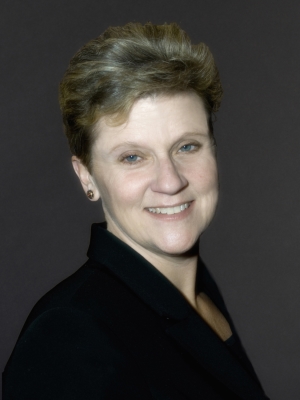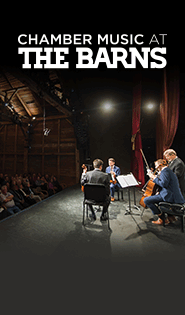Cantate Chamber Singers bring radiant advocacy to meditative program

Gisele Becker conducted the Cantate Chamber Singers program Saturday night in Chevy Chase.
There was a moment, just before the start of Saturday’s Cantate Chamber Singers’ concert at St John’s Episcopal Church in Chevy Chase, when a week’s worth of overcast gloom finally broke, and sunlight bathed the intimate, cream-colored nave. It was as if Nature was offering a bit of wry stage management for a program of Baroque funeral-themed cantatas that treat the subject of death with a tone of decided optimism.
The small church proved an ideal venue for music director Gisele Becker’s chamber-sized forces. The ensemble of period instruments (which varied in personnel from cantata to cantata, but never exceeded a dozen), the roughly 35-member chorus and four early-music vocal soloists were able to be heard on barely a thread of sound, and filled the space excitingly in the bigger moments.
Becker emphasized lightness and purity of tone in her chorus, which featured supple, dovetailing phrasing and a homogenous blend, both within sections and when singing as a full group. The instrumentalists – a fine consort, grounded by a pleasingly flutey chamber-organ continuo – provided mellow, diaphanous sound, free of scratch or bleat.
Becker’s selection of scores brought a welcome cohesion–the cantatas shared not only their musical form, German origins and subject matter, but three of the represented composers were near-exact contemporaries, and even the fourth overlapped them in their early years. Yet there was a striking variety in the colorful metaphors for the transition from life to afterlife chosen by these composers.
For Telemann, in “Du aber, Daniel, gehe hin” (But you, Daniel, go your way), this world is a place of sickness, misery, and decay, and life a thing to be merely endured until God arrives and transports us to a land of wellness and delight. The Danish, Buxtehude protégé, Nicolaus Bruhns, in his “Hemmt eure Tranenflut” (Cease your flowing tears) likens life, with its crushing weight of sin and Satanic temptation, to the heavy stone at the portal of Christ’s tomb, and describes it rolling away to free us all for a joyful afterlife.
Likewise, Christoph Graupner’s “Herr, die Wasserstrome erheben sich” (Lord, the waters rise up) envisions God as an all-powerful helmsman who will sweep us up in his boat, and ferry us away from the turbulent waters of life. And, in the one well-known work on the program, JS Bach’s “Gottes Zeit ist die allerbeste Zeit” (God’s time is the best time), we get a variation on the Divine Watchmaker image, advising us to trust in God’s excellent sense of timing: Though we have no say in the scheduling of our inevitable death, just trust God – the hour he’s chosen is the right one, and the trip to Heaven will be worth it.
The music of all four composers was beautifully crafted and inventive, and often more than that. Surprises abounded: Solos for soprano and bass in the Telemann that foreshadow the style of Mozart’s operatic aria-writing two generations later; the zesty theatricality in Graupner’s instrumental writing to describe the roiling waters; haunting tick-tocking pizzicato rhythms to suggest life’s clock running out in the final chorus of the Telemann; the forward-moving, stream-of-consciousness drive of the Bruhns piece, aria tumbling after aria. Here was yet another indication of the riches that lie in the vaults, beyond the ceaselessly played evergreens from the Baroque era.
We were fortunate to hear a quartet of soloists who understood the style, and did justice to these rarely-heard works. Grace Srinivasan sang with a diminutive, boy-treble-like tone that suited the wondering innocence in many of her texts. DC early-music veteran mezzo, Barbara Hollinshead, sounded for all the world like a countertenor, with tenor Joseph Dietrich matching her tone uncannily. Bass Steven Combs delivered a mix of heft and elegant phrasing with a lyric-baritone’s timbre, while never slighting the impact of the low notes.
During the closing strains of the Bach, as if on cue, a clear, gorgeous twilight descended, in time for the curtain call
Joe Banno is a freelance classical music critic who has had over 800 reviews published in the Washington Post, Washington City Paper, the LA Times, The Classical Review and other media outlets. Based in Los Angeles, Banno is also an award-winning director in theater, opera and film.


